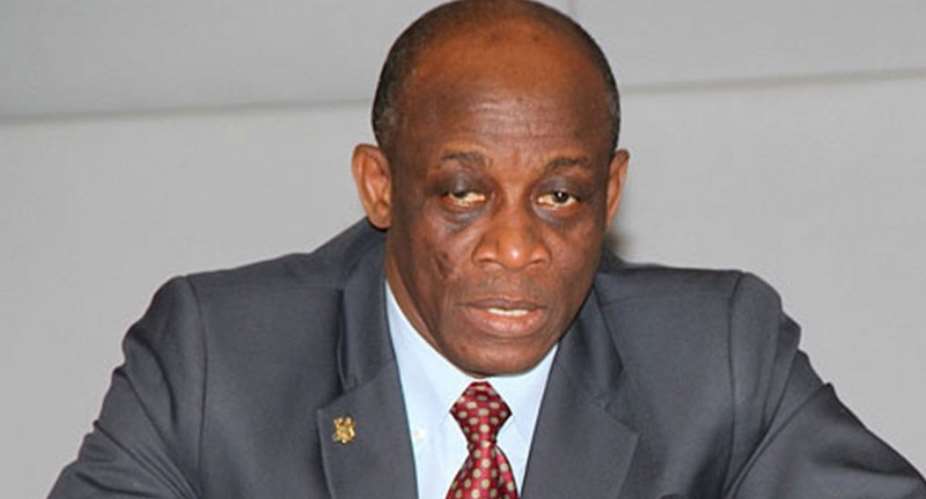The government of Ghana two years ago adapted a number of economic management policies brainstormed and proposed by Ghanaian experts from various fields of profession to help salvage the then ailing economy.
This saw a pool of most prolific economists, industrialists, financial experts, academia, health practitioners, legal luminaries, agriculturists and politicians to gather at Senchi to arrive on a number of consensus which has later refined into policies.
Government since the forum set up a committee to help in advising the government on the implementation modalities. Most of these policies were those adopted by the International Monetary Fund (IMF) for Ghana when the country sought for a relief from it.
Years, after the implementation, the Minister of Finance, Mr Seth Terkper, has stated that Ghana’s economy is getting back on the path of growth as a result of a sustainable home-grown policy that has been adopted by the government.
The Finance Minister expressed optimism that for the first time, Ghana would see a home-grown IMF programme that would result in turning the economy around and backed by a plan to lower debts, to bring massive investments in terms of oil and gas.
Already, the World Bank had projected a growth rate of between seven and eight per cent in the next two to three years.
Moreover, he indicated for instance that the government had slowed down on borrowing in order not to increase the country’s debt stock which currently stands at about US$28 billion, while it had resolved to concentrate on completing pipeline projects so as not to put pressure on the budget.
Mr Terpker explained that, the factor that mostly affected growth of the Ghanaian economy was the disruption in gas supply from Nigeria, which also resulted in massive layoffs, as businesses could not get power to work.
“Tax revenue also reduced because employment lowered due to the layoffs but, nonetheless, the government decided not to give handouts because that was not sustainable,” he said.
Mr Terkper further explained that, a moratorium had been imposed on all new projects except where they were very necessary. This is to ensure that only pipeline projects were tackled, he said.
He disclosed that to make good its plan to execute only projects that had already been started, a contract data base had been compiled on all outstanding projects across the country.
“Ghana never knew how many contracts were in the system and that is one of the biggest headaches Ghana has always had - overshooting the budget. So when we did that data base, we realised that we had nearly about 3,000 or so projects here and there from education to health to others’’, he stated.
Meanwhile, government has expressed willingness to enter into agreement of mortgaging one of the country’s oil and gas block with China in line with government’s self-financing loan strategy to secure a loan from the China Development Bank (CNB) for a period of 19 years starting in 2018.
This was a recommendation following the negotiations with the CNB by a task force mandated to discuss the utilization of the US$500 million remaining US$1.5 billion of the US$3 billion deal.
The Finance Minister has explained that, “The premise for the CDB facility, which is in tune with our self-financing loan strategy is that proceeds from any commercial project must be used to pay for any loans that are used to finance the project”.
“The payment was to be from revenue flows from crude oil which is sold on the international market at bench mark prices but crude oil prices fell and that source of financing the loan became inadequate,” Mr. Terkper noted in unison with the NPP’s narration.
He noted that the strategy of self-financing loans was to avoid putting any burden tax payers.
“So we had indicated that once the processes start, there could be other source of financing repayment for the facility. That is the discussion that we are holding now, to see how we can use the proceeds from lean gas and from other gas sources to finance any infrastructure that is built and not put the load for such infrastructure on the tax payer and increase public debt.”





 We’ll no longer tolerate your empty, unwarranted attacks – TUC blasts Prof Adei
We’ll no longer tolerate your empty, unwarranted attacks – TUC blasts Prof Adei
 Bawumia donates GHc200,000 to support Madina fire victims
Bawumia donates GHc200,000 to support Madina fire victims
 IMF to disburse US$360million third tranche to Ghana without creditors MoU
IMF to disburse US$360million third tranche to Ghana without creditors MoU
 Truck owner share insights into train collision incident
Truck owner share insights into train collision incident
 Paramount chief of Bassare Traditional Area passes on
Paramount chief of Bassare Traditional Area passes on
 Two teachers in court over alleged illegal possession of BECE papers
Two teachers in court over alleged illegal possession of BECE papers
 Sunyani: Victim allegedly shot by traditional warriors appeals for justice
Sunyani: Victim allegedly shot by traditional warriors appeals for justice
 Mahama vows to scrap teacher licensure exams, review Free SHS policy
Mahama vows to scrap teacher licensure exams, review Free SHS policy
 Government will replace burnt Madina shops with a new three-story, 120-store fac...
Government will replace burnt Madina shops with a new three-story, 120-store fac...
